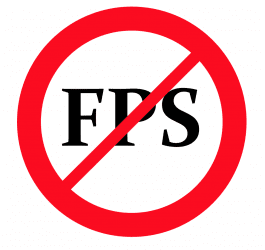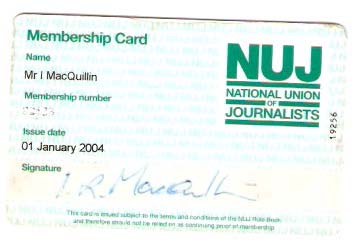Why I am speaking out about the FPS
Even though it is not his fight, Ian MacQuillin explains why he is speaking out so vociferously against the Fundraising Preference Service.
Ever since Olive Cooke took her own life in May I have been writing and speaking about fundraising ethics, self-regulation, media relations. Since September 23, when Sir Stuart Etherington published his review of fundraising, I have been talking, debating, writing and arguing about the Fundraising Preference Service.
I have been doing this so much, so rigorously and, on occasion, so vociferously, that it has started to threaten personal relationships (at least two) I have built since I first became part of the fundraising community in April 2001. Not only that, the volume of my shouting might from some angles make me look like a lunatic standing on the sidelines doing little more than bringing down what other people are trying hard to build without offering any constructive solutions.
Advertisement
“I am not just stating my opposition to the FPS, nor criticising those who have proposed it, or are currently supporting and endorsing it, because I can do. I am doing it because I have to.”
So why am I doing it? Why am I bothering? After all, I am not and I never have been a fundraiser, and I can’t see a time when I will be. This is not my profession. Why risk my friendships and my reputation by repeatedly announcing to the world that the Fundraising Preference Service is the most stupid, ill-thought through, wrong-headed idea I have encountered in all my time with the fundraising profession, when I am not actually part of that profession?
Because for me this is a matter of conscience and principle.
In my entire professional career, which started on 2 October 1988 on my first day as a staff writer for What Video magazine, I have never felt so compelled to speak out and speak up on a issue of such vast importance. And not just that, an issue that I feel I have at least a small chance of influencing.
I am not just stating my opposition to the FPS, nor criticising those who have proposed it, or are currently supporting and endorsing it, because I can do. I am doing it because I have to. Personally, I’d feel hypocritical if I didn’t; if I reined in what I was saying just so I didn’t rock the boat, upset anyone, or – heaven forbid! – offend anyone. This issue is – unfortunately – bigger than personal relationships.
I just cannot stay silent about this.
Anyone who knows me at least slightly well will know that I don’t proffer an opinion about anything important without having thought it through from all angles to the nth degree. And so it is with the Fundraising Preference Service. I have thought and thought about this more than is probably good for my health, and I cannot see one good reason in its favour that is not outweighed by better reasons against it.
I am told that there are good reasons in support of the FPS. I am told that people hold these good reasons, including senior figures in the fundraising profession. So far, I haven’t heard any of these reasons articulated.
It also seems to be taken as read that the FPS is going to happen, that it’s a done deal, and so there is no point opposing it any more. The best we can do is accept that it’s happening and work with those who are going to ensure it happens (Government and NCVO) to try to get the best (i.e. least worst) outcome for fundraising. It’s even been suggested to me that the amount and tone of my criticism of the FPS might make it harder for those working on behalf of the profession to achieve this ‘best’ outcome.
I will be happy to ‘tone down’ my criticism of the FPS as soon as I am presented with coherent, consistent and logical arguments in support of it. If I’m confronted with a knockback argument, I’ll even change my mind and start supporting it (if I am comprehensively out-argued, how could I not?).
I am not a fundraiser, but…
As I have said many times before, I am not a fundraiser, and to be perfectly frank, I’m glad I’m not. I don’t know what it feels like to be a fundraiser in the current climate under the current circumstances. But if I were a fundraiser, I think I would feel let down and abandoned. I think I would feel that nobody is standing up to represent the core professional values that I believe in. If fact, I might think that they were being given away on a plate.
I’m not a fundraiser, so I really can’t empathise with what it feels like to be a fundraiser in the autumn of 2015. But I was a journalist. Being a journalist was so much a part of my identity. I was proud to be a journalist. I worked had to become a journalist and got a sense of achievement I’d never felt before when I landed my first job. I had a strong worth ethic and a strong sense of professional ethics. I was passionate about communicating the information my readers needed to know. And I was pretty good at it. For 18 years, when people asked me what I did, I replied: ‘I am a journalist.’ The day after I left the profession, I stopped being what I had been for the previous 18 years. I could no longer say: ‘I am a journalist.’ And it left a wound in my core sense of who I was that didn’t heal for two or three years.
So I can try to envisage how a proud, passionate, committed, talented and ethical fundraiser might feel in the current climate.
I’m still a member of the National Union of Journalists (NUJ). Let’s suppose the Government were introducing a system whereby journalists were to be limited in how and why they could contact people, and the types of questions they could ask them, and the NUJ were saying, ‘OK, it’s a done deal, this thing is happening, so how can we co-operate with the government to make it works as best as we can get’. I’d rip up my membership card on the spot.
“I have thought and thought about the FPS more than is probably good for my health, and I cannot see one good reason in its favour that is not outweighed by better reasons against it.”
I would not want to be part of a profession where the people I paid to represent my views and protect my working practices and professional values had surrendered them so lamely.
The Institute of Fundraising has always considered that its interests and the interests of the fundraising profession are one and the same thing. That is not necessarily so. In this case, it is in the interests of the Institute of Fundraising that it should be the IoF that represents fundraisers’ views vis-à-vis the FPS to government. It is in the interest of professional fundraisers that someone represents their views accurately.
What if the views of fundraisers are not those the IoF has an appetite for presenting to government? What if most fundraisers want their professional institute to stick two fingers up to the FPS and withdraw co-operation from the working group set up to establish it. If the IoF followed this mandate from its members, it would certainly lose a lot of its influence with the Office for Civil Society.
There’s probably a strong case that if fundraising’s views have already been ridden over so roughly in the proposal to establish the FPS, then views of the profession will count for equally little in setting it up, but I can’t foresee any situation whatsoever in which the Institute of Fundraising would walk away from the negotiations.
This is not my fight, but…
The fundraising profession needs leadership on the issue of the Fundraising Preference Service. But that leadership does not necessarily have to be provided by the Institute of Fundraising. It could come from a different source or direction.
I am not a fundraiser. This is not my fight. As director of Rogare, I can discuss, debate, cajole, criticise, and perhaps even influence. I care about fundraising deeply and passionately. I have made more friends in fundraising than the rest of my life put together. But I am not a fundraiser and this is not my fight. If fundraisers want to oppose the Fundraising Preference Service, then it is fundraisers who must do so. If the current leadership is not representing the views of fundraisers about the FPS, then it is fundraisers who must establish an alternative leadership.
As professionals, you will get the outcome your profession fights for. Or you will fail to get it, but at least you’ll know that you fought a just fight for what you believed in rather than simply settling for being told what you can and can’t do by Government and NCVO. And perhaps the next time the Government sets about imposing restrictions on how charities can ask people for support, they won’t find the fundraising profession such a push over.
But as I keep saying, I am not a fundraiser. And I can’t tell you what in your profession is worth fighting for or how you should fight for it, if at all. That’s your call.
Ian MacQuillin is director of Rogare, the fundraising think tank at Plymouth University’s Centre for Sustainable Philanthropy.





